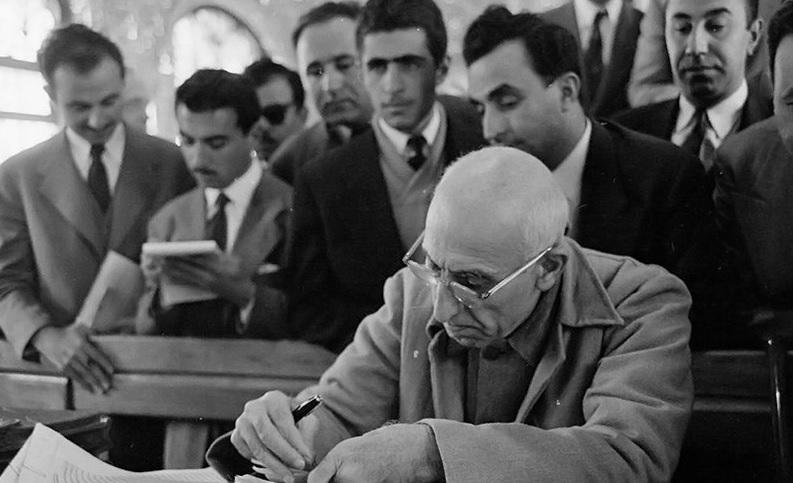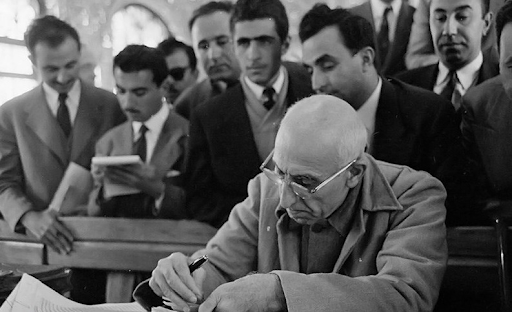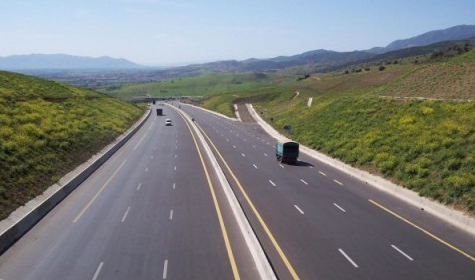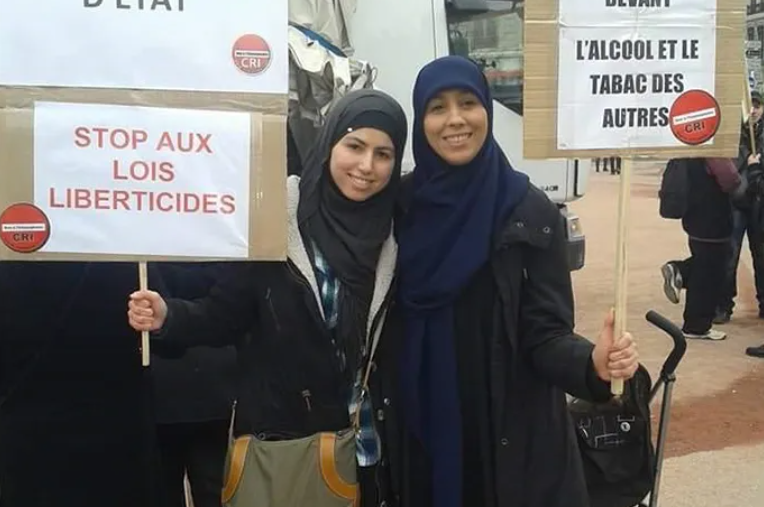
Media review: Islamic dress front and center in France again... He who wears a cape or a shirt will not enter his classroom on Mondays
On Sunday, French Education Minister Gabriel Atal announced that he would ban the wearing of the "cloak" in French schools, indicating that wearing this Islamic dress is a violation of the strict secular laws applied in the field of education in the country.
"Wearing the abaya in school will no longer be possible," Atal said during an interview with French TV TF1. And he stressed his endeavor to set "clear rules at the national level" to be followed by school principals before the start of the new academic year in all parts of France, starting from September 4 next.
Clearly, the universal values that Macron instructed his diplomats to promote exclude Muslims' rights to dress.
Here are some of what the French media outlets have said about these issues and the topics they covered.
The French newspaper Le Figaro revealed that the Minister of Education, Gabriel Atal, confirmed today that students who wear the “abaya” for females and the “shirt” for males will not enter their classrooms with the start of the school season on Monday.
The newspaper pointed out that the minister made it clear - in an interview with Radio France International today - that these students will be allowed to enter only the schools that accept their reception and bear the responsibility of clarifying the goals of this government decision to them.
"Behind the cloak and the shirt, there are young girls and boys and families, people with whom we must dialogue through a clear pedagogical method," the minister said.
The French minister was keen to stress that French secularism is one of the main values for the French school, adding that his delay in announcing the details of the implementation of this decision is due to the fact that he entered into discussions and dialogues with directors of educational institutions who were waiting for a clear detail from the government on how to implement it.
The French newspaper stated that some schools include a number of students concerned with this decision, and therefore school officials were in need to clarify the government's position, to provide them with all guarantees for the implementation of the decision.
Le Figaro added that Minister Gabriel Atal confirmed that his ministry will send explanatory notes and a guide to all schools explaining how to implement the decision, along with messages that are supposed to be sent to families.
According to the French newspaper, the new decision to ban gowns and shirts is a continuation of the implementation of the March 15, 2004 law banning the wearing of clothes or symbols that show religious affiliation in French educational institutions.
Prominent French left-wing politician Jean-Luc Melenchon strongly criticized the decision, and called on officials to avoid provoking conflicts of a religious nature.
Le Figaro also quoted Manuel Bombard, coordinator of the France Fatherland Party - which is led by Melenchon - as saying that he would propose to the party's parliamentary group to reject this decision, which he described as dangerous and harsh, and to put it up for review before the Council of State with the aim of proving that it is a decision contrary to the constitution.
And in July of last year, Le Figaro published an investigation that revealed that despite the application of the 2004 law, there is a significant increase in the abayas worn by girls and shirts worn by males, so that they doubled in secondary schools, especially when Ramadan comes, so that some principals They expressed their dissatisfaction and began to wonder why such clothes were so popular.
An official French book defending French secularism had previously spoken of gowns and shirts, and said that the ban was not only related to “symbols or clothing that by nature show religious affiliation,” such as the veil, the Jewish skullcap, and the large cross, but rather related to all symbols or clothing that “do not indicate religious affiliation.” directly to religion, but wearing it is to clearly show religious affiliation.
And the French newspaper Le Point considered - two days ago - that the decision of the Minister of Education, Gabriel Atal, is not an easy decision from a legal point of view, and wondered on what legal basis this ban would be built and what risks could be taken in the event of an appeal before the administrative court.
The anthropologist of religions, Anne-Laure Zwilling, believed that the cloak is not associated with Muslim worship, but rather with "culture", while university professor Claire Geville denounced President Emmanuel Macron's vision regarding education, and saw that "the measure against the cloak may cause more conflict than it will solve a problem," and he said, " From my point of view, this issue, which comes to the fore and dominates everything else, is more a matter of a political agenda than a real educational issue.
For his part, Abdullah Zakry, Vice President of the French Islamic Council, expressed his surprise at the decision to ban the wearing of the abaya in French schools, and called on the French Ministry of Education to issue a statement explaining the reasons that prompted the decision to ban the abaya in schools, and denied that this dress is a religious symbol.
Abdullah Zakry said that the abaya is a form of "fashion" and not a religious garment, expressing his hope that the French Minister of Education had consulted religious authorities before making a decision to ban it.













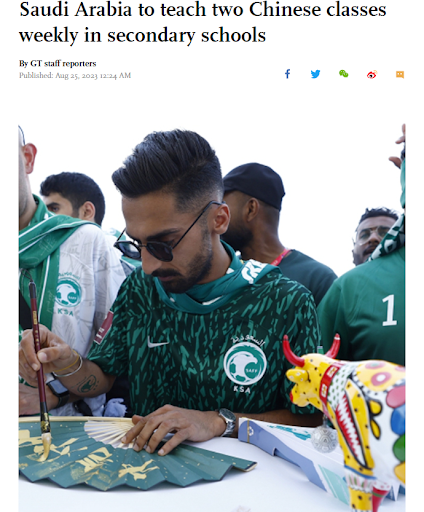







.jpg)
.jpg)











